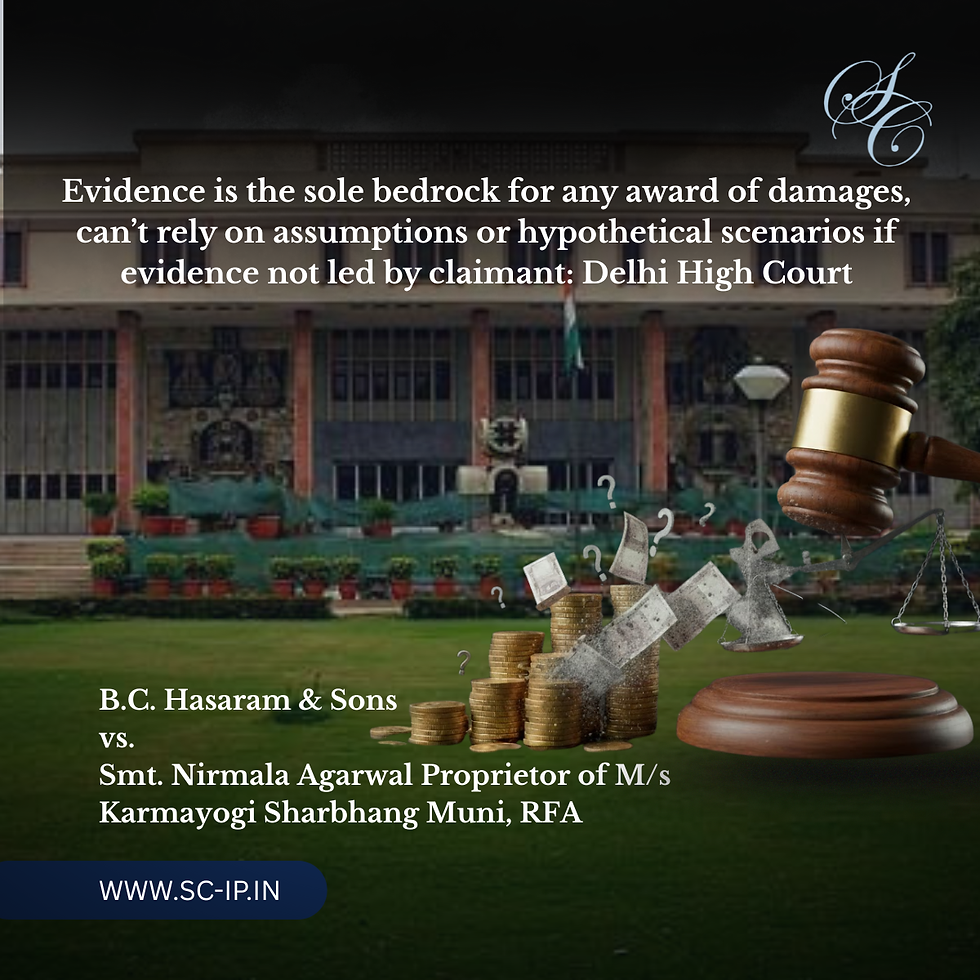ITC Limited v. Controller of Patents
- SC IP
- Aug 27, 2025
- 2 min read
Updated: Aug 28, 2025

The Calcutta High Court delivered a significant judgment in ITC Limited v. Controller of Patents (IPDPTA No. 121 of 2023), overturning the Patent Office’s refusal of ITC’s patent application for a device and method to generate and deliver nicotine aerosol without electronic or heating components.
Background: The Patent Office rejected ITC’s application primarily under Section 3(b) of the Patents Act, 1970, which excludes patents for inventions whose intended use could be contrary to public order or morality, or injurious to human, animal, or plant life. The refusal cited health concerns, government statutes (including the Prohibition of Electronic Cigarettes Act, 2019), and the Indian Council of Medical Research (ICMR) White Paper on Electronic Nicotine Delivery Systems.
Court’s Findings:
The Court emphasized the applicant was not provided proper notice or an opportunity to respond to many critical documents and statutes first introduced in the refusal order, violating principles of natural justice.
Section 3(b) should be interpreted with focus on the invention’s primary or intended use rather than speculative or indirect health consequences.
Tobacco and nicotine-related inventions are not categorically excluded under Section 3(b) or patent law in India.
Granting a patent does not equate to the right of commercialization, therefore, regulatory restrictions do not justify refusal of patentability.
The Court referred to India’s international obligations, i.e., TRIPS and Paris Convention, to reinforce that patent rights cannot be denied solely due to domestic commercialization restrictions.
Consequently, the Court set aside the refusal and remanded the case for a fresh examination by a different officer, to issue a reasoned decision within six months with fair opportunity for ITC to respond.
Key Takeaways
Procedural Fairness is Essential: Patent offices must disclose all documents and grounds relied upon well in advance, ensuring applicants can meaningfully contest objections.
Scientific and Technical Evidence Must Support Refusals: Blanket assumptions about harm or morality without evidence cannot justify refusing a patent.
Patentability vs. Commercial Regulation: Patent grant decisions should not be integrated with regulatory or policy decisions on public health or market access, which are separate government functions.
Tobacco/Nicotine Inventions Aren’t Per Se Barred: Such inventions require individual assessment on inventive merit and statutory grounds, and therefore should not be automatically exclusion.
This ruling marks a pivotal development balancing innovation incentive with public health concerns in India’s evolving patent landscape.
ITC Limited v. Controller of Patents (IPDPTA No. 121 of 2023)




Comments